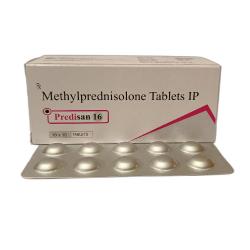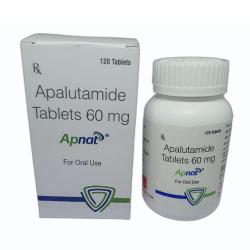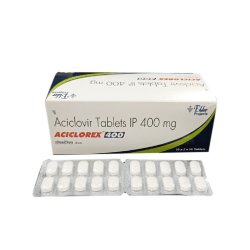Description
Methylprednisolone Tablet is a synthetic glucocorticoid, primarily used for its anti-inflammatory and immunosuppressive effects. Its different uses are as follows:
- Endocrine Disorders | Rheumatic Disorders | Collagen Diseases | Dermatologic Diseases
- Allergic States | Ophthalmic Diseases | Gastrointestinal Diseases | Respiratory Diseases
- Hematologic Disorders | Neoplastic Diseases | Edematous States |Nervous System: Acute exacerbations of multiple sclerosis
Dosage and Side Effects
The initial dosage of Methylprednisolone Tablets may vary from 4 mg to 48 mg daily on behalf of the specific disease entity being treated. In circumstances of less severity lower doses will generally suffice while in selected patients higher initial doses may be needed. The initial dosage needs to be maintained or adjusted until a satisfactory response is noted. If after a reasonable time-span there is a lack of satisfactory clinical response, Methylprednisolone therapy should be interrupted and the patient transferred to other appropriate therapy.
The most commonly reported side effects due to methylprednisolone tablets may include: trouble sleeping, appetite changes, vomiting, heartburn, headache, dizziness, increased sweating, nausea, or acne.
FAQ's
What is Methylprednisolone?
Methylprednisolone is a corticosteroid, anti-inflammatory agent, authorized to treat to inflammatory conditions such as arthritis, ulcerative colitis, lupus, psoriasis, allergic disorders, endocrine disorders, and conditions that affect the eyes, skin, lungs, stomach nervous system or blood cells. It may be used alone or along with other medicines.
What strengths of methylprednisolone tablets are available?
Tablets are available in different dosage strengths which are as
- Methylprednisolone 2 mg
- Methylprednisolone 4 mg
- Methylprednisolone 8 mg
- Methylprednisolone 16 mg
- Methylprednisolone 32 mg
What type of drug is Methylprednisolone?
Methylprednisolone specifically is a type of drug called Corticosteroids.
How is Methylprednisolone administered?
Methylprednisolone is supplied in the form of tablets for oral administration.
How to take Methylprednisolone Tablets?
Take the prescribed dosage of methylprednisolone with food. Swallow the methylprednisolone tablet with a drink of water.






